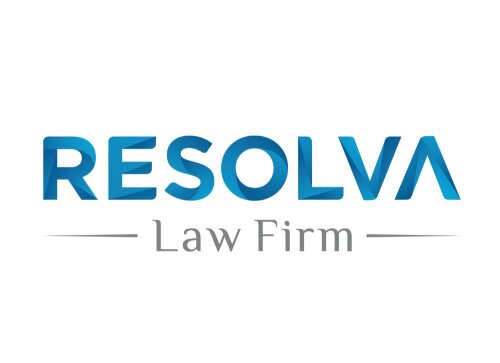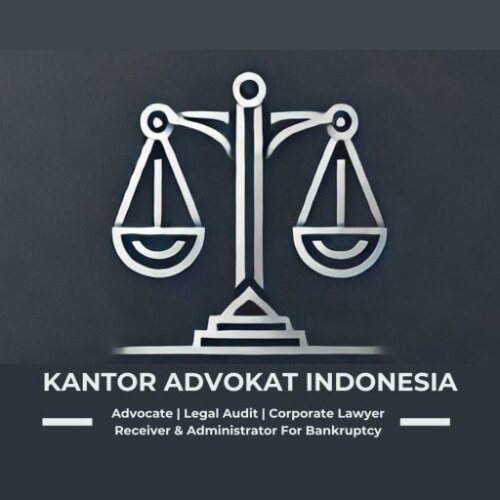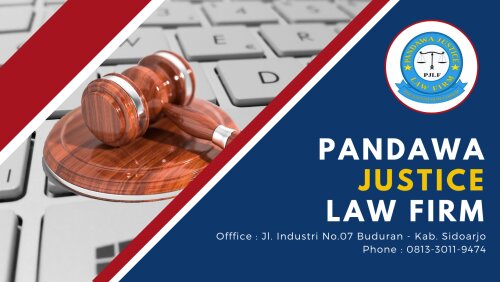Best Financial Services Regulation Lawyers in Indonesia
Share your needs with us, get contacted by law firms.
Free. Takes 2 min.
Or refine your search by selecting a city:
List of the best lawyers in Indonesia
About Financial Services Regulation Law in Indonesia
Financial Services Regulation in Indonesia is governed by several laws and regulatory bodies, aimed at ensuring the stability and integrity of financial markets and protecting consumers. The main regulatory authority is the Financial Services Authority (Otoritas Jasa Keuangan or OJK), which oversees banking, insurance, capital markets, and other financial institutions. The regulatory framework includes the Banking Law, Capital Market Law, Insurance Law, and various regulations issued by the OJK. These laws provide the guidelines for licensing, operation, and supervision of financial services providers, aiming to create a transparent, efficient, and fair financial system.
Why You May Need a Lawyer
There are numerous situations where individuals or companies might need legal assistance in the realm of Financial Services Regulation in Indonesia. These include navigating complex regulatory requirements when establishing a financial services business, ensuring compliance with ongoing regulatory changes, handling disputes with financial institutions, dealing with allegations of regulatory breaches, or seeking remedies for malpractices. Lawyers specializing in financial regulation can provide expert advice, help avoid legal pitfalls, and represent clients in negotiations or disputes.
Local Laws Overview
The regulatory landscape in Indonesia consists of several key legislative acts, including:
- The Banking Law: This law sets the legal framework for the establishment, management, and supervision of banks in Indonesia, including regulations on bank solvency, capital adequacy, and consumer protection.
- The Capital Market Law: This governs the operations of securities exchanges, brokers, and other capital market participants, setting standards for transparency and investor protection.
- The Insurance Law: It regulates the insurance sector to promote good governance and financial soundness of insurance entities, as well as protecting policyholders.
- OJK Regulations: OJK frequently issues regulations on various aspects such as anti-money laundering (AML), counter-terrorism financing (CTF), digital financial services, and more.
Frequently Asked Questions
What is the role of the Financial Services Authority (OJK) in Indonesia?
The OJK is responsible for regulating and supervising all financial services activities in banking, capital markets, and non-banking financial industries in Indonesia, ensuring a sound and stable financial system.
Do foreign financial institutions need a license to operate in Indonesia?
Yes, foreign financial institutions must obtain a license from the OJK to provide financial services in Indonesia, adhering to specific regulations and requirements set by the authority.
What are the penalties for non-compliance with financial regulations in Indonesia?
Penalties for non-compliance can range from fines, sanctions, suspension or revocation of licenses, and even imprisonment for severe breaches.
How does Indonesian law protect financial consumers?
Consumer protection laws require financial institutions to disclose relevant information, implement fair practices, and provide avenues for customer complaints and dispute resolution.
Can I challenge a decision made by the OJK?
Yes, decisions by the OJK can be appealed, typically through administrative courts, although this can be a complex process often requiring legal assistance.
What is required to establish a financial services company in Indonesia?
Establishing a financial services company involves securing the appropriate licenses, satisfying capital requirements, and compliance with regulatory conditions set by the OJK.
How are digital financial services regulated in Indonesia?
Digital financial services fall under specific OJK regulations focusing on electronic transactions, cybersecurity, consumer data protection, and fintech innovation.
What is the process for reporting financial fraud in Indonesia?
Financial fraud should be reported to the OJK, which investigates the matter and can take regulatory action or inform law enforcement for further investigation.
Are there specific AML (Anti-Money Laundering) regulations to follow?
Yes, financial institutions must adhere to Indonesian AML laws requiring customer due diligence, reporting of suspicious activities, and maintaining transaction records.
What support exists for resolving financial services disputes in Indonesia?
Various mechanisms exist, including mediation services provided by the OJK and legal avenues through the courts. Engaging a lawyer can help in navigating these processes effectively.
Additional Resources
For those seeking further information or assistance, consider the following resources:
- Otoritas Jasa Keuangan (OJK): The main regulatory and supervisory authority providing guidance and information on financial regulations.
- Bank Indonesia: Offers insights into monetary policy, payment systems, and currency management.
- Indonesian Chamber of Commerce and Industry (KADIN): Provides support and advocacy for businesses operating within Indonesia's financial sectors.
- Legal Firms Specializing in Financial Regulation: Professional services for comprehensive legal advice and representation.
- Consumer Rights Organizations: These organizations promote consumer rights and provide support for financial grievances.
Next Steps
If you require legal assistance in Financial Services Regulation, consider the following steps:
- Clearly define your legal issue or question to streamline the consultation process.
- Research and identify legal firms or practitioners specializing in financial services regulation.
- Prepare all relevant documents and information before meeting with a lawyer to ensure a productive consultation.
- Discuss potential strategies or solutions and understand the implications of each option.
- Consider ongoing legal support for compliance and risk management to safeguard against future issues.
- Stay informed about changes in financial regulations that might impact your activities or business.
Lawzana helps you find the best lawyers and law firms in Indonesia through a curated and pre-screened list of qualified legal professionals. Our platform offers rankings and detailed profiles of attorneys and law firms, allowing you to compare based on practice areas, including Financial Services Regulation, experience, and client feedback.
Each profile includes a description of the firm's areas of practice, client reviews, team members and partners, year of establishment, spoken languages, office locations, contact information, social media presence, and any published articles or resources. Most firms on our platform speak English and are experienced in both local and international legal matters.
Get a quote from top-rated law firms in Indonesia — quickly, securely, and without unnecessary hassle.
Disclaimer:
The information provided on this page is for general informational purposes only and does not constitute legal advice. While we strive to ensure the accuracy and relevance of the content, legal information may change over time, and interpretations of the law can vary. You should always consult with a qualified legal professional for advice specific to your situation.
We disclaim all liability for actions taken or not taken based on the content of this page. If you believe any information is incorrect or outdated, please contact us, and we will review and update it where appropriate.
Browse financial services regulation law firms by city in Indonesia
Refine your search by selecting a city.

















